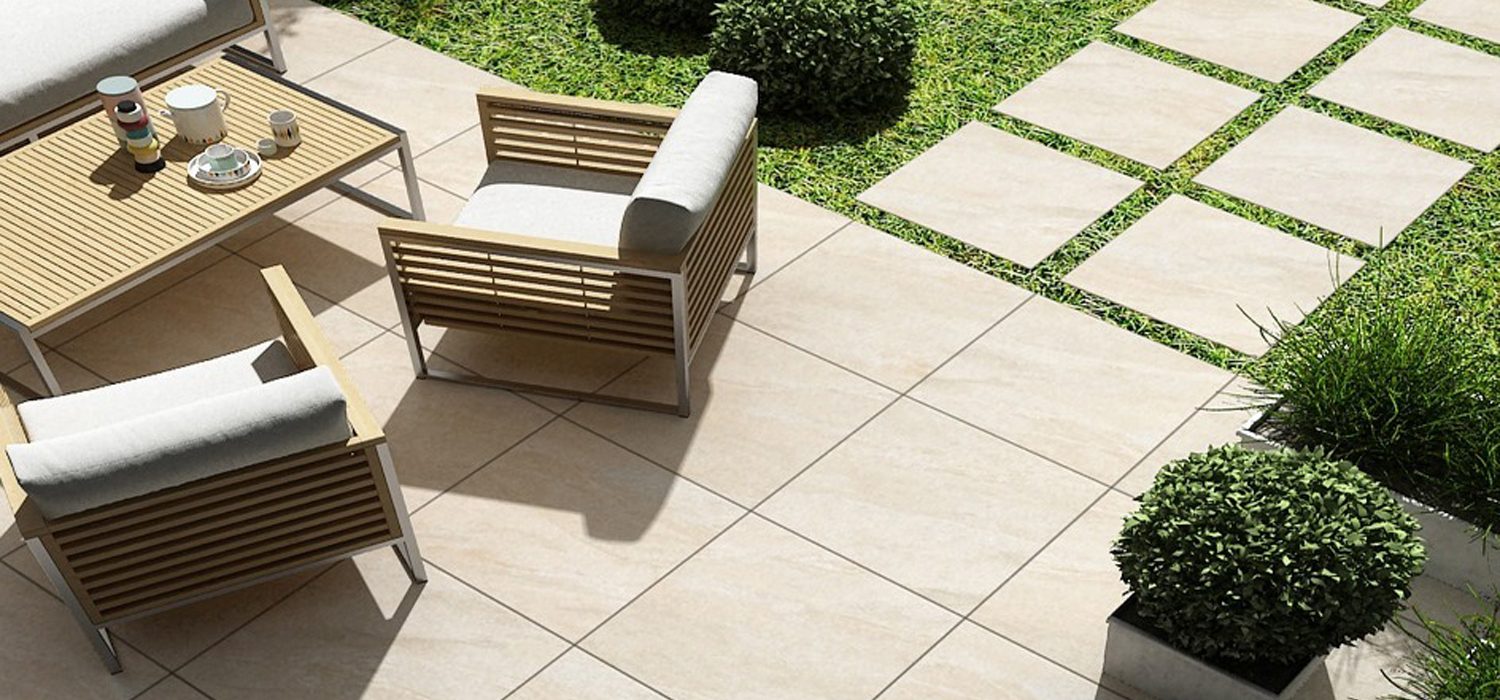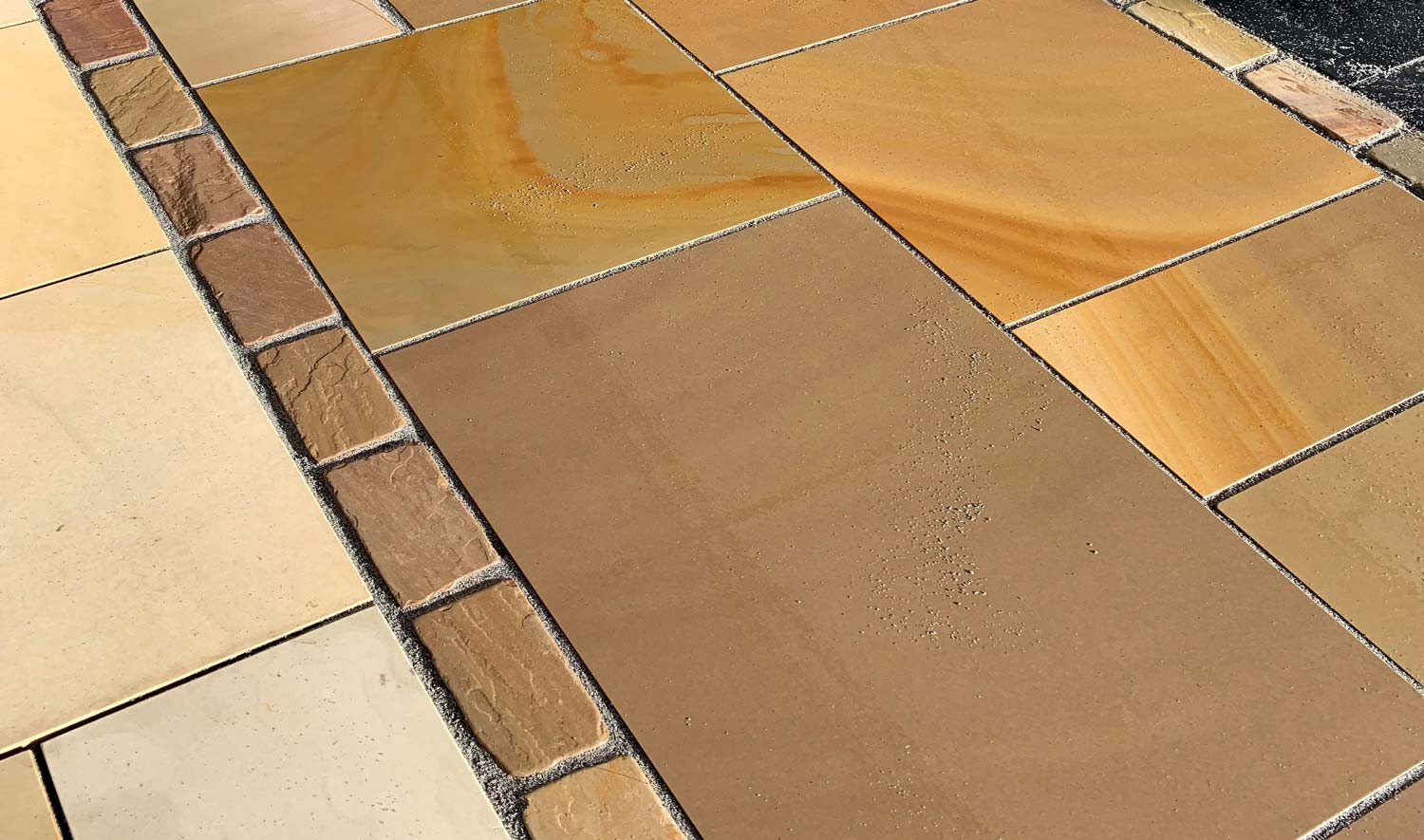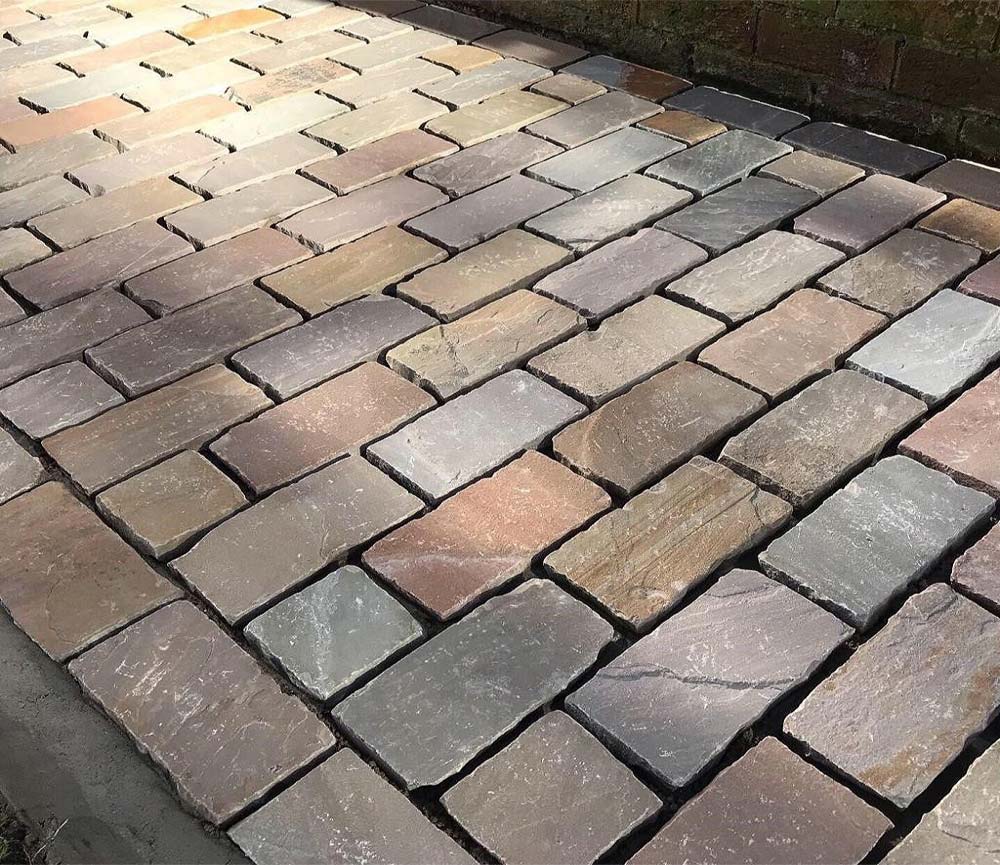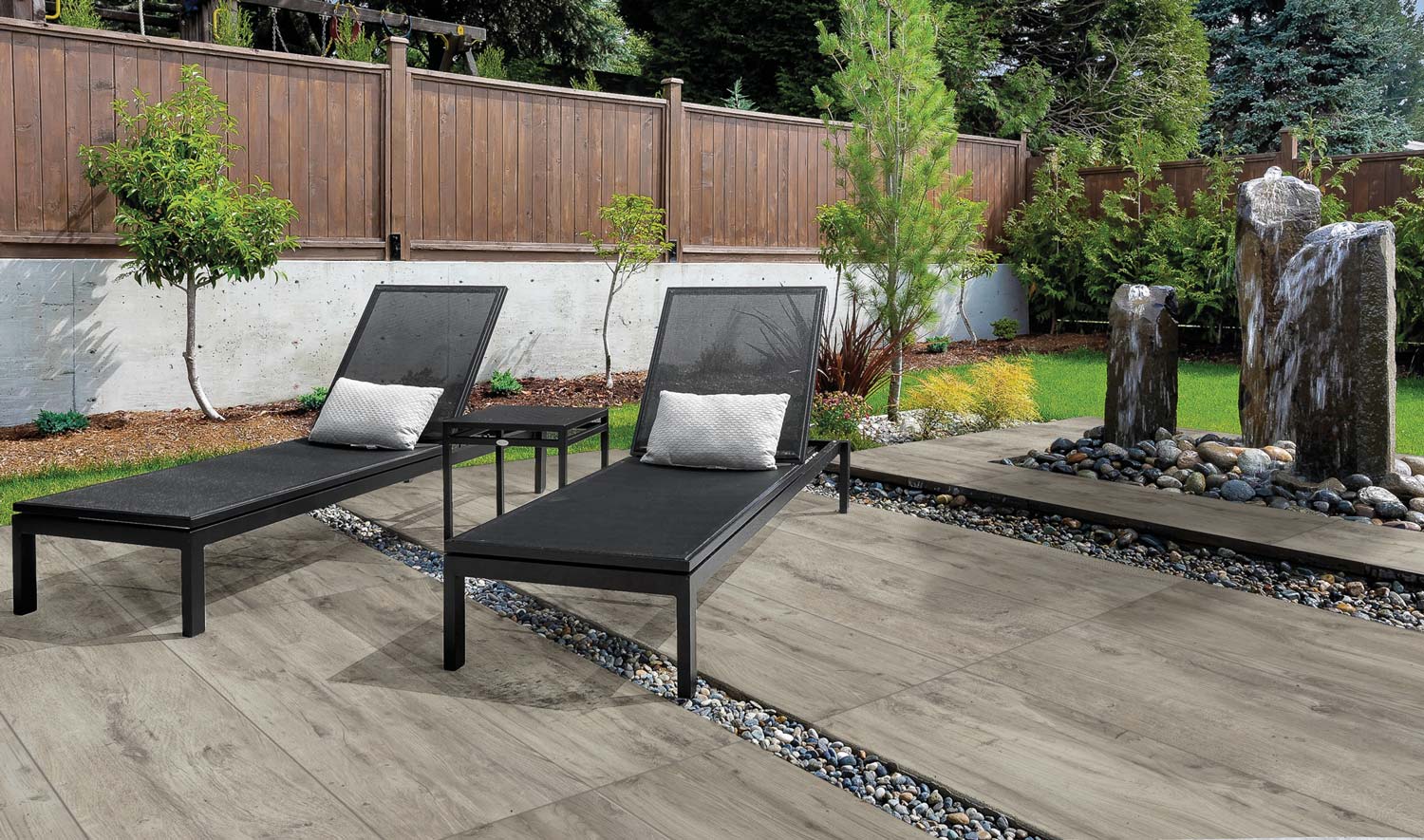What are the differences between Porcelain Paving and Indian Sandstone Paving?

So, you’re looking for the perfect paving, but you’re feeling lost amongst a slurry of sandstone and a plethora of porcelain. There’s lots to see, and lots to learn, and we understand it can be confusing.
Paving’s just paving, right?? Well, not exactly. So, what is the difference? Luckily for you, this happens to be our area of expertise. Here’s a guide to help you know your paving from your - well, paving. You’ll be a patio pro in no time.
The Details.
Let’s go back to the beginning. A huge difference between Porcelain and Indian Sandstone is the materials they’re made from. Whilst Indian Sandstone is a natural product, ethically sourced from - you guessed it - India, Porcelain Paving is entirely man made. This means Porcelain Paving is a very uniform 20mm thick, comes in a range of colours and designs, and has a specially designed anti-slip surface texture.
In comparison, Indian Sandstone was made by mother nature herself, and comes in colours of her choosing - mainly those categorised as Kandla Grey, Raj Green and Rippon Buff. The Sandstone also weathers naturally, which means those colours change and deepen over time - giving you paving that grows with you, and your garden.
Another key distinction is the fact that the two pavings have different porosities. Indian Sandstone is porous, which means it’s more susceptible to stains, generally requires a sealant, but gives you that rustic, weathered look. Porcelain is non-porous, which means it’s easier to clean, but requires the extra step of a slurry primer to be put in place.

The Aesthetics.
The important bit. We know your spaces are just that - yours. Which means you want a paving that suits your style. If you’re looking for range - we’d recommend Porcelain. It comes in a whole host of styles, ranging from the swish and slick, the cool, calm and collected, right through to the just plain clever - wood effect paving, anyone? Porcelain is also scratch and stain resistant, which means you won’t have to always be reminded of the time you tripped over the dog and dropped your glass of red (at least not by us.)
If you’re after character, go for Indian Sandstone. It’s natural, which means no two slabs are the same; and better yet - it changes over time, which means you can watch the colours develop, and fall in love with them all over again. It’s also ethically sourced, and is processed using fewer chemicals than porcelain - perfect if you’re running an eco-friendly garden. The material lends itself to the cosy, country style, but don’t be fooled, because we’ve got both contemporary and quirky as well.

The Upkeep.
Every area of your home and garden requires a little upkeep to keep it looking its best. Your paving is no different. Because Indian Sandstone is porous, it’s more likely to pick up liquid stains, and, in extreme cases, mold or bacteria. This is why we recommend sealing your paving. A sealant reduces moisture absorption, and protects your paving from stains, UV rays, weeds, and the good old british weather. Sealant also makes Indian Sandstone a lot easier to clean, so it’s perfect for areas of high use. For best results, we recommend re-sealing every 2-3 years.
Porcelain is a little easier to maintain. By design, it’s non-porous, which means it resists scratches and stains, and is easy to clean. It’s perfect for those with kids, pets, or those who have particularly raucous parties - just invite us next time.
The Cost.
The big one. In general, Indian Sandstone is the more cost effective option - it weathers well, lasts ages, and a sealant is an affordable option to make it last even longer. But, if you’re after that slick, modern, porcelain look - it’s worth the extra cost.


